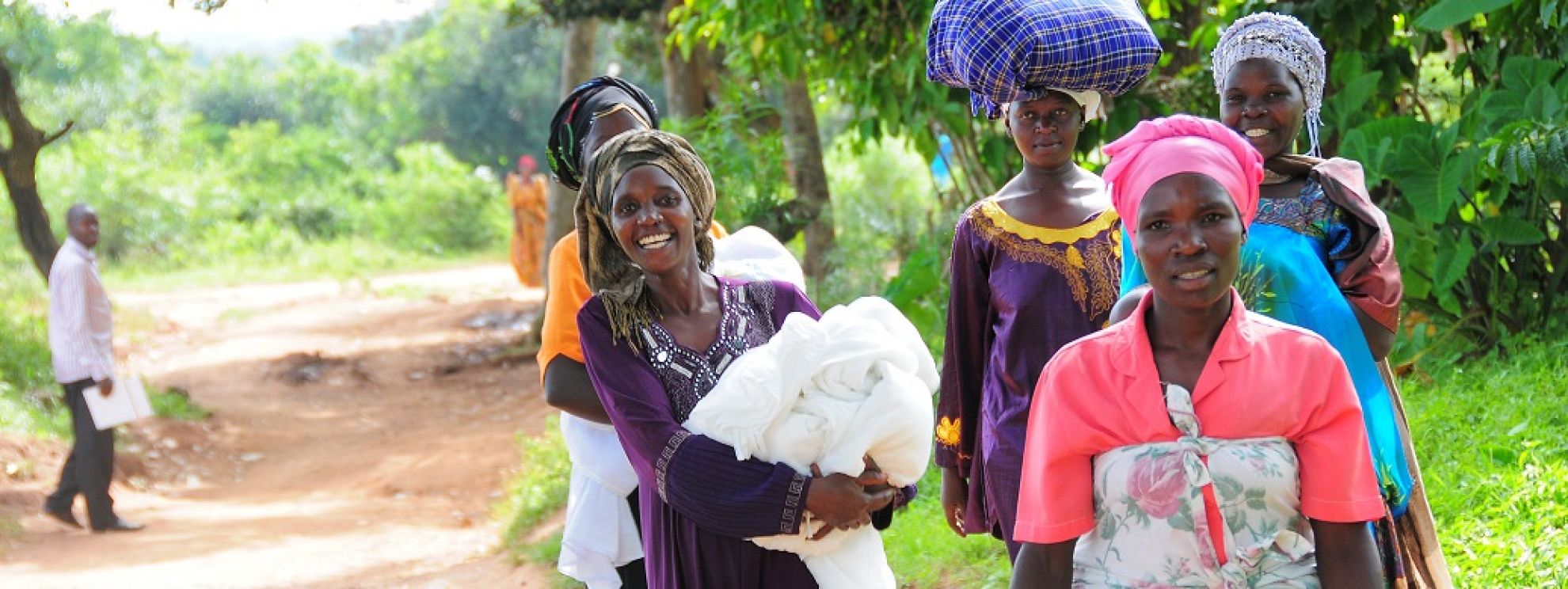
Unprecedented net gains: the role of insecticidal treated nets in fighting malaria
22 April 2016Extending access, and increasing use, of mosquito nets amongst those most at risk from malaria – pregnant women and children under the age of five – has been a significant factor contributing to a massive decrease in malaria deaths.
To mark World Malaria Day 2016 and the launch of a new Malaria Consortium advocacy brief on Insecticidal Treated Nets (ITNs), here are five facts you may not have known about mosquito nets:
- ITNs – nets treated with insecticides that kill mosquitoes that land on the net – are the number one preventive measure used worldwide to protect people from malaria, as well as many other vector-borne diseases
- Over a billion nets have been distributed in Africa alone since 2000 – that’s almost one per person. As a result, ITN coverage in Africa has risen from below two percent to an estimated 55 percent in 2015
- There are a variety of different mosquito nets, but the most widely used are Long Lasting Insecticidal Nets (LLINs), which last for up to three years and cost as little as US$3 each - that’s about the same as a cup of coffee
- The effectiveness of ITNs is being threatened by growing resistance to the insecticides used to treat the nets. Since 2010, of 78 countries reporting monitoring data, 60 reported resistance to at least one insecticide class, and 49 reported resistance to two or more.
- Despite growing insecticide resistance, ITNs are still effective at preventing malaria, as they provide a physical barrier between you and the mosquito. Recent research carried out jointly by Malaria Consortium and London School of Hygiene & Tropical Medicine indicates that even though resistant mosquitoes are surviving contact with insecticides, the malaria parasites are affected by the chemicals.
Achieving and then maintaining universal coverage of ITNs amongst at-risk populations remains of central importance to the future of malaria elimination of the next fifteen years. To find out more, read Malaria Consortium’s ITN advocacy brief.
Keywords: Private sector | Vector control | Advocacy and policy
Related content
22 April 2016
Malaria prevention through insecticide treated nets
Advocacy briefs and reports
more
Latest news
- International summit calls for AMR accountability in public health interventions21st March 2024
- Global SMC community celebrates new milestone at SMC Alliance Annual Meeting in Nigeria6th March 2024
- Scaling up key interventions could halve pneumonia-related childhood mortality13th February 2024
- Malaria Consortium and eGov Foundation join Mozambique’s national malaria programme to digitalise seasonal malaria chemoprevention campaigns8th February 2024
- World’s first malaria vaccine rollout launched in Cameroon22nd January 2024
- Digital solutions driving equitable access to health6th December 2023